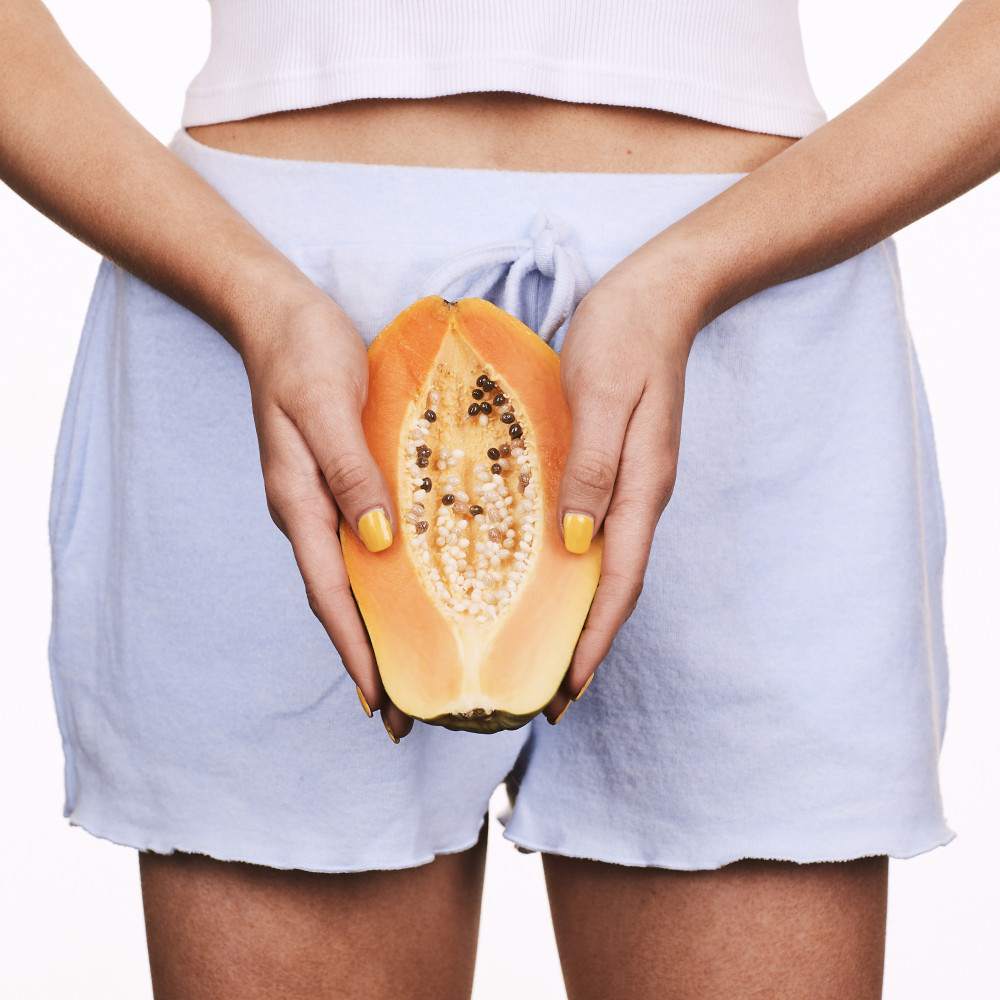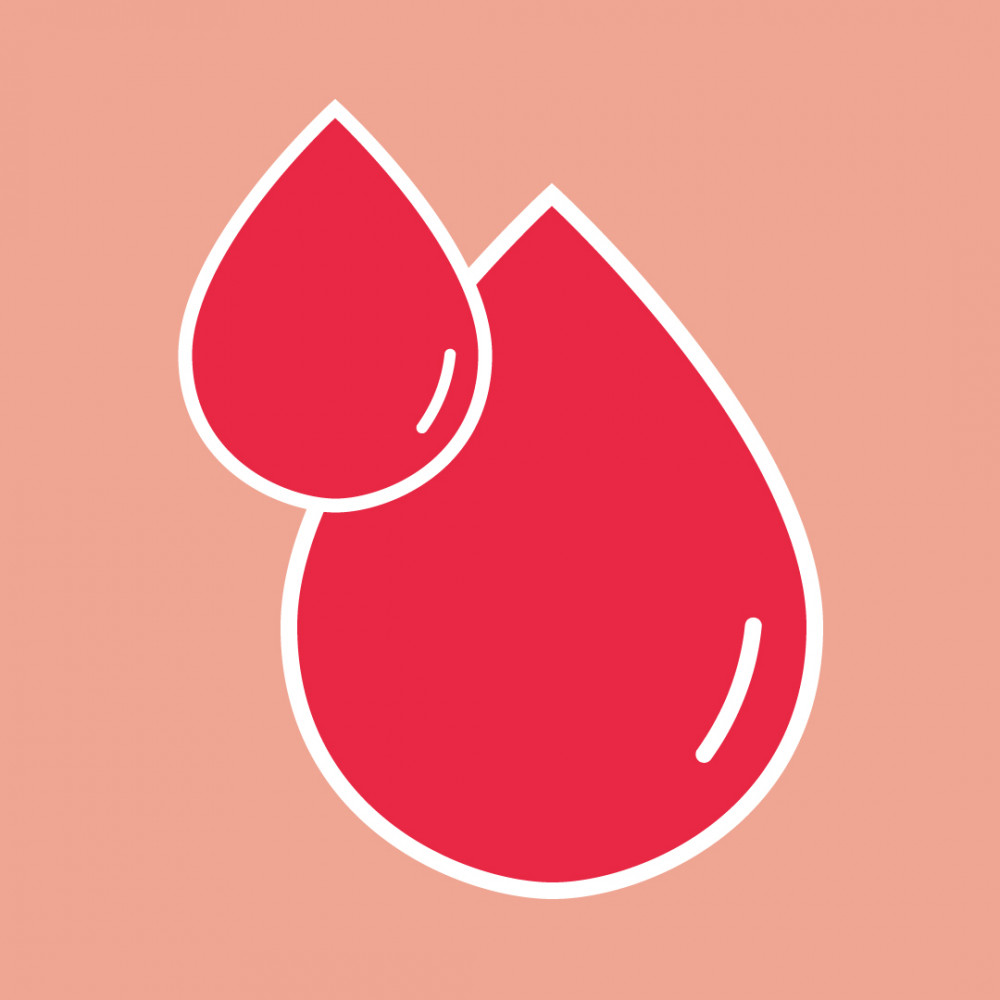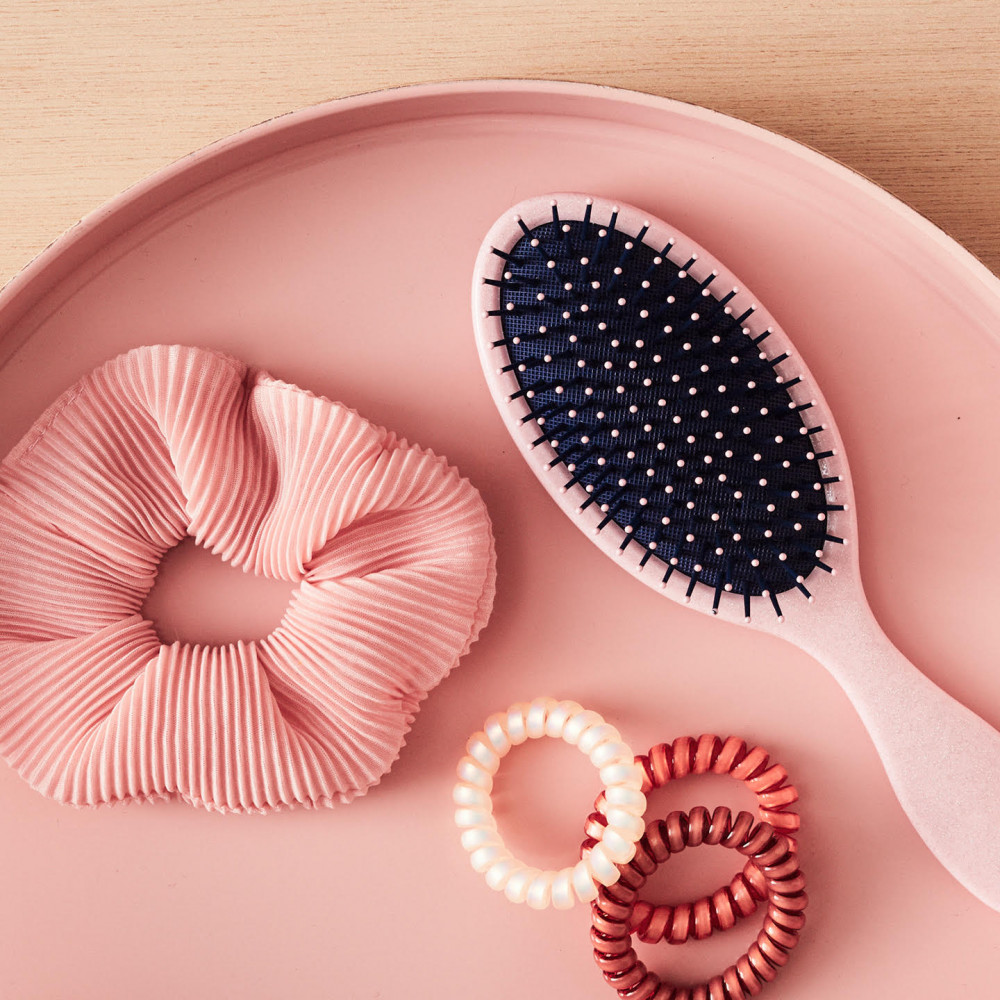Fact: half the population of the world has periods. Every single month. For 35 plus years. For anyone selling, well, anything to with periods, that’s a pretty big audience. But menstrual product companies have always had a tricky relationship with mainstream media. In fact in the US, menstrual product TV advertising was banned until 1972. The first time someone actually said the word ‘period’ out loud, was when Courtney Cox fronted a commercial for Tampax in 1985. (The Australian version starred a young Naomi Watts who instead was scripted to refer to it as ‘the hassle you don’t talk about’.)
Throughout the 1980s, ’90s and beyond, the liquid representing period blood was a pretty shade of blue. It wasn’t until three years ago that Bodyform became the first brand to feature sanitary pads stained with red liquid, in a UK TV slot.
And the women in the ads? They were most often depicted wearing white, jumping for joy, and laughing delightedly – three things that most women do not actually do much of on their period.
But it’s now 2020, and we’ve evolved. There are very public conversations going on around us right now about period poverty, transsexual menstruation, and normalisation of the menstrual cycle. We’ve started to see more honest, progressive content in ads for menstrual products. In September last year, a campaign by sanitary pad brand Libra was the first to depict menstrual blood on Australian television, showing stained underwear and blood on a woman's legs. Despite more than 600 complaints – the highest for any ad in 2019 –Australia's industry regulator dismissed them, instead praising the message for ‘promoting equality and the de-mystification of menstruation’. Yay.
Unfortunately, not everyone is quite so enlightened. In September this year, period underwear company Modibodi had its ad banned by Facebook, for violating the policy that states ‘ads must not contain shocking, sensational, inflammatory or excessively violent content’. The campaign, which ironically features people talking about the stigma that exists around menstruation, and briefly depicts bloodstained bed sheets, failed three ‘human reviews’.
After a very public backlash, Facebook reversed its decision.
An isolated incident this was not. In August this year, a Tampax ad titled ‘Tampons and Tea’ featured a mock chat show format, with the host talking about how you shouldn’t be able to feel your tampon. No blood here, just a demo of a tampon being inserted into someone’s fist. The ad was banned in Ireland, where the Advertising Standards Authority for Ireland (ASAI) found it had caused ‘widespread offence’ and had used an ‘inappropriate manner to discuss a sensitive topic’.
Sensitive topic or basic biology? Why are we even still asking.





